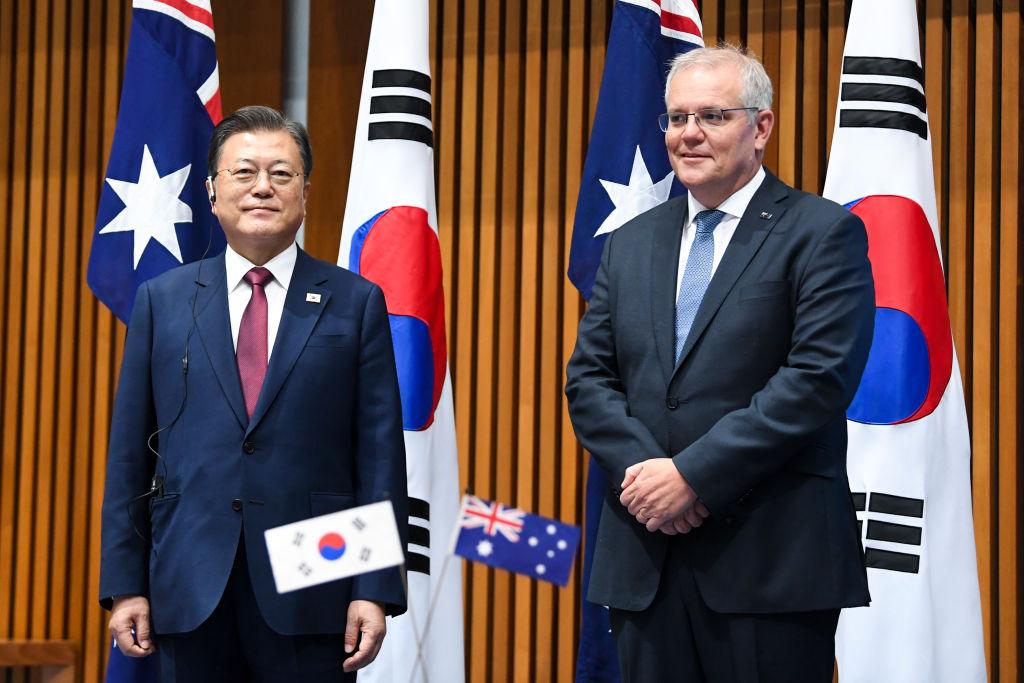South Korea and Australia adopted a joint statement on the South China Sea, a region that China claims as its own, underscoring that territorial disputes must be “resolved peacefully” in accordance with international law.
South Korean President Moon Jae-in and Australian Prime Minister Scott Morrison jointly signed the statement after the summit talks at Parliament House in Canberra on Monday.





